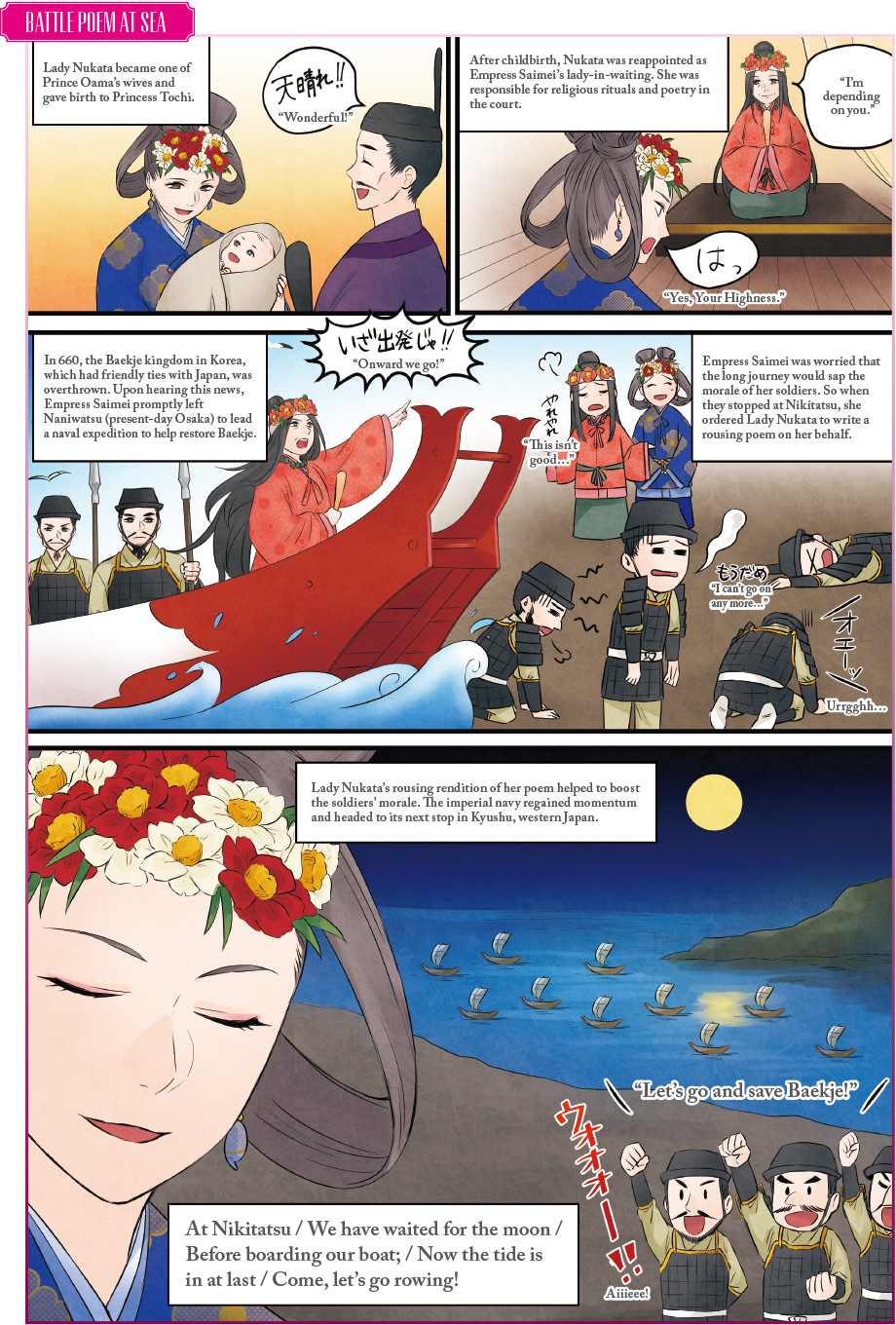Motherhood doesn’t slow her career. She joins Empress Saimei in heading to battle.
The right hand of the empress
Empress Saimei tackled diplomacy with great energy. She was especially keen to maintain friendly relations with Baekje, one of the three kingdoms on the Korean Peninsula. In 660, Baekje was destroyed by an alliance of the Chinese Tang dynasty and the Korean Silla kingdom, which sought to conquer the Korean Peninsula. Baekje loyalists called for help from Saimei. In response, she personally led her navy toward Kyushu (western Japan) with the aim of seeing the Baekje kingdom reinstated. The ship also carried her sons Prince Nakano-oe and Prince Oama, Oama’s consorts Ota and Unono-sarara, and other members of the imperial family. Lady Nukata was also among those on board. But trouble came when the expedition left Nikitatsu in Iyo Province (present-day Ehime Prefecture) and arrived at Asakurano-miya (in present-day Asakura, Fukuoka Prefecture). Saimei fell ill and passed away. Without their inspirational empress, the navy suffered a terrible defeat at the Battle of Baekgang in 663. The defeat prompted Saimei’s successor, the crown prince Nakano-oe, to pursue policies focused more on national defense.
Poem Commentary:
At Nikitatsu / We have waited for the moon / Before boarding our boat; / Now the tide is in at last / Come, let’s go rowing!* (Book 1, Poem 8)
The Man’yoshu is the oldest existing collection of Japanese poetry. The poets in it include men and women, young and old—people from all ranks of society, from the emperor to frontier guards and common folk. It contains many works by great poets such as Kakinomoto no Hitomaro and Otomo no Yakamochi. Even in such company, this poem by Lady Nukata is considered a masterpiece of the anthology. The poem was created at Nikitatsu, a beach near Dogo Onsen in present-day Ehime Prefecture. It focuses on the moon and the accompanying tide. The navy had been waiting for the moon and the tide to rise, so that they could set sail. The poem essentially says that “Now is the time—conditions are perfect.” This message must surely have lifted the soldiers’ spirits. Lady Nukata was a great motivator as well as a gifted poet. Her talents are clear to see in this poem.
*Translation by Edwin A. Cranston

